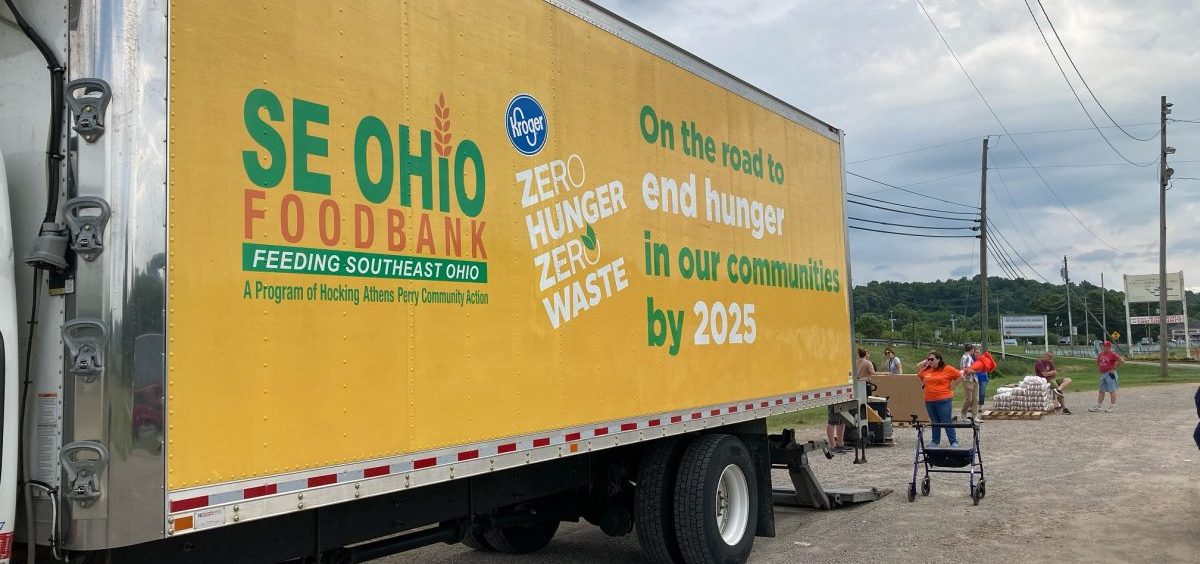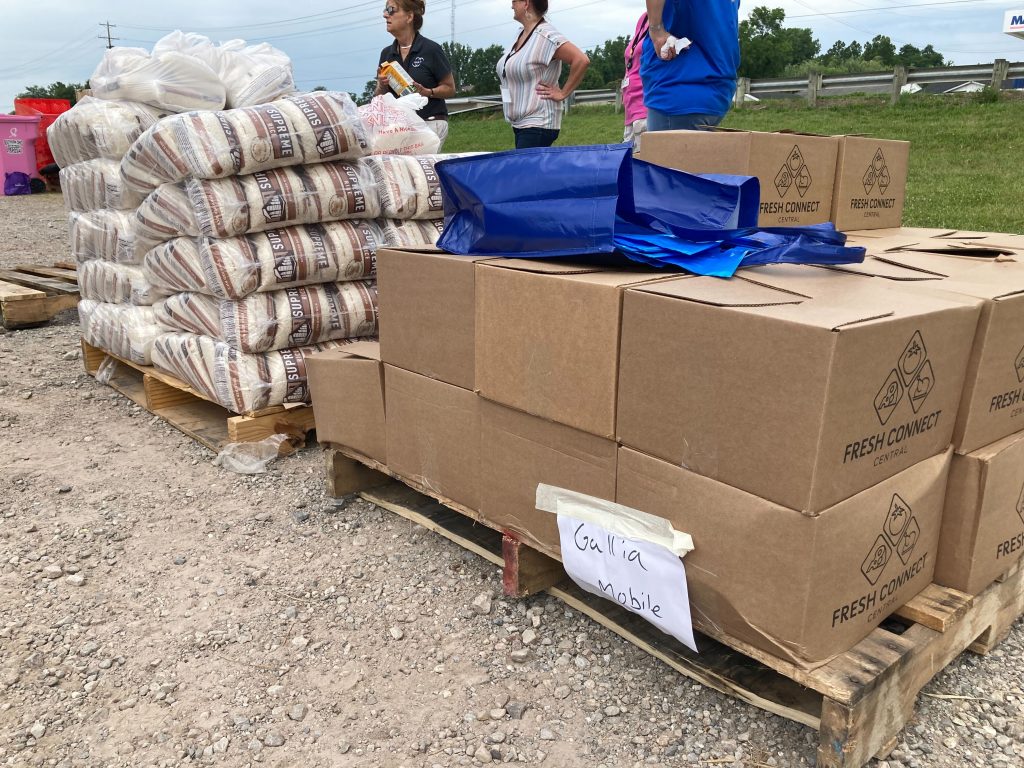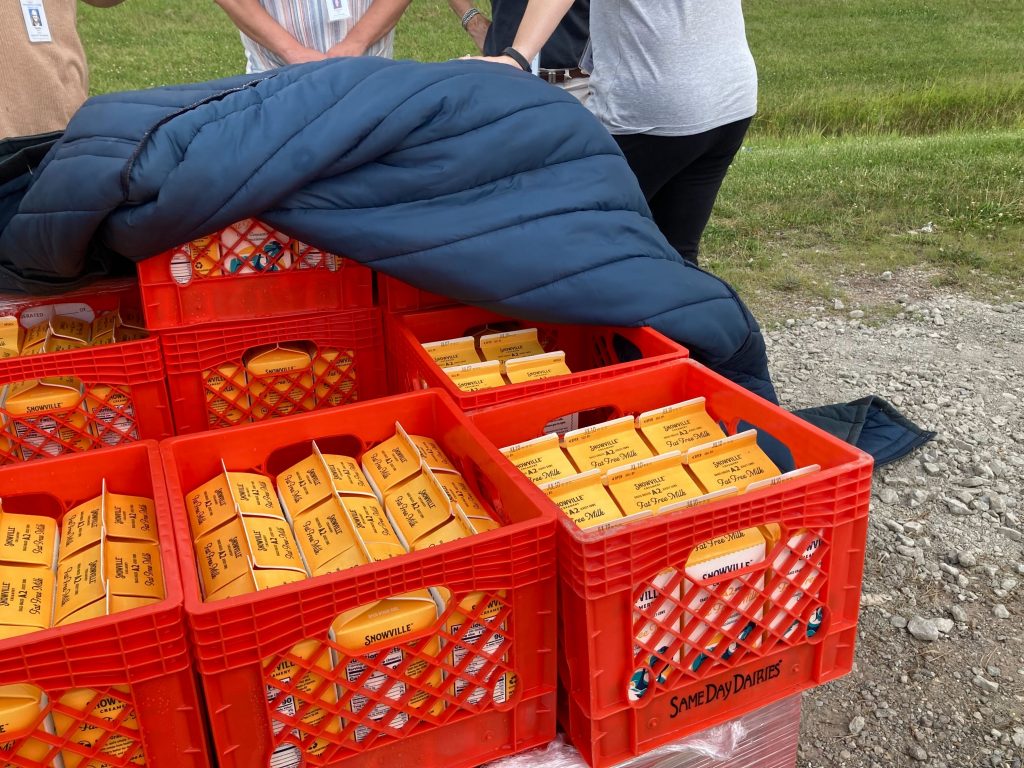News

Funding losses and high prices force food bank to close down mobile distribution program
By: Theo Peck-Suzuki | Report for America
Posted on:
GALLIPOLIS, Ohio (WOUB/Report for America) — The Southeast Ohio Food Bank’s mobile food market is set up like a drive through. Cars pull in at one end of the Gallia County Junior Fairgrounds, then proceed along an assembly line of volunteers who bring food straight to the driver’s window. The type of food varies based on availability; today, visitors leave with milk, rice, and bags of assorted produce.
No money is exchanged. This event is one of many the food bank runs throughout the region for low-income residents facing food insecurity.
“I draw food stamps, but they don’t last now,” said Nancy Blaire. “This helps me to eat. This is the greatest gift that God has given me – to get food from the food boxes.”
But this is the last mobile market for the entire summer. The end of COVID relief funding, along with the spike in food and gas prices, has forced the food bank to suspend the operation indefinitely.
Blaire, 76, is retired and living alone off Social Security. Medical expenses consume much of her income.
She does her best to live frugally. “I just cook at home and eat,” she declared. “I don’t go out to fast food. I don’t draw enough money to go out in luxury, in restaurants.”
She said she can make the food she receives today last about a month. Under normal circumstances, that would be long enough to tide her over until the next time the market comes through. But it will be far longer than that before the food bank is operating normally again.

“We have a lot of food poverty in our area,” said County Auditor Robbie Jacks, one of the day’s volunteers. “Especially in the summertime, with the kids that are normally getting fed in school.”
Between 70 and 90 percent of students in schools throughout Gallia County receive free or reduced lunches. Some rely on the food bank when schools are closed.
The Hocking Athens Perry Community Action Program, or HAPCAP, oversees the Southeast Ohio Food Bank.
“COVID relief is ending and we’re not getting the same funding that we used to,” explained HAPCAP’s Lydia Dippre. “Obviously, the need is still here. We’ve seen a 40 percent increase in the need so far this year.”
But far from rising to meet that need, the money has dwindled.
Worth noting is that the Southeast Ohio Food Bank is not a beneficiary of the Joe Burrow Hunger Relief Fund. That money goes to the Athens County Food Pantry and does not benefit HAPCAP’s partners in other counties, such as Gallia.
With food and gas prices ballooning, the Food Bank has had to halt much of its programming indefinitely.
Dippre said she sees two ways for the Food Bank to bring the mobile market back: a flood of food donations from the community, or the state allocating money from the American Rescue Plan Act.
“We do have an ask to Governor DeWine’s administration for $50M across the entire state of Ohio for food banks,” Dippre said. “They are reviewing that now but it’s looking more and more grim every day that that’s not going to happen.”
The Ohio Office of Budget and Management did not return a request for comment.

“My son said, ‘Mom, I’ll do without for you,’” Blaire recalled. Her voice shook. “I said, ‘No, you won’t. I’ve done without for you, and I’m not gonna eat, and my kids go hungry.’ I will not.
“We never thought we’d have to ever ask anybody for help, ’cause we’re workers. And I worked, and I worked hard. I worked three jobs a day to raise my children. And it’s worse now than it was when I was working and raising my kids.”
Theo Peck-Suzuki is a corps member with Report for America, a national service program that places journalists into local newsrooms. He covers Children and Poverty for WOUB Public Media.

